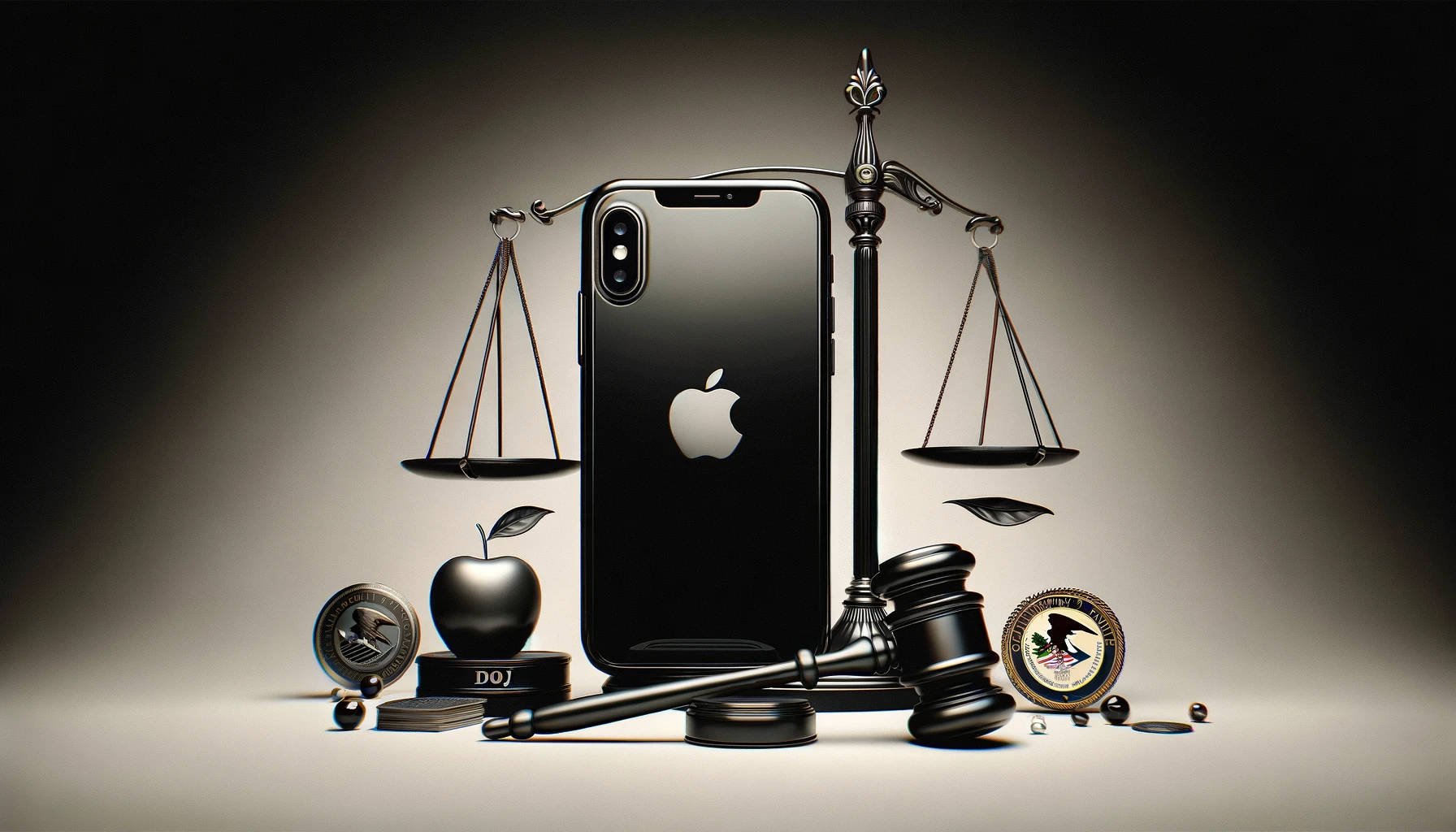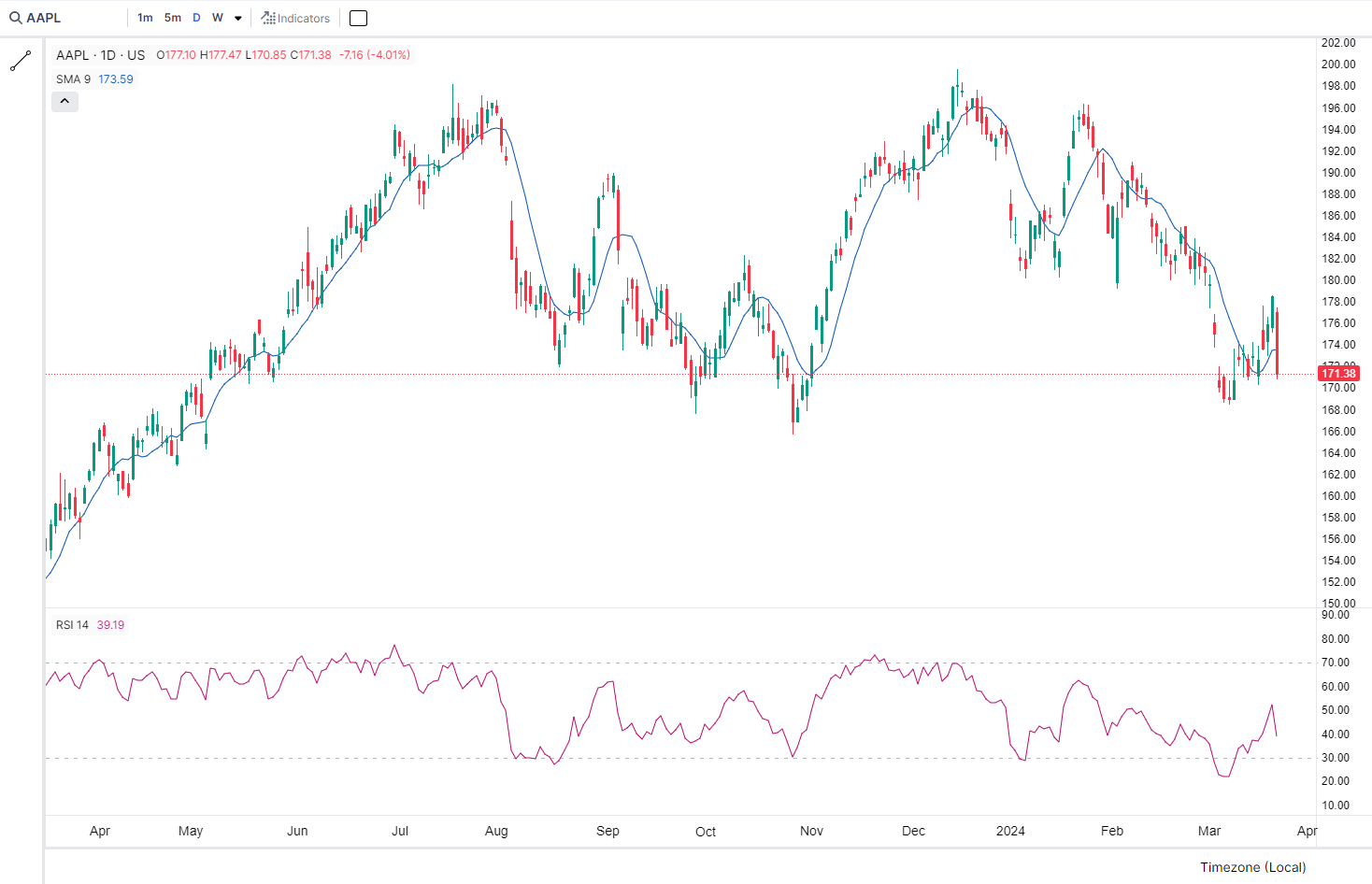Apple Faces Department of Justice Lawsuit Over iPhone Monopoly
Exploring the Legal Battle and Its Implications for Tech Industry
Last updated: Mar 21, 2024
Author: Nathan Nobert
In a landmark case, the Department of Justice (DOJ) has filed a lawsuit against Apple, accusing the tech giant of maintaining an illegal monopoly over the smartphone market through its iPhone product line. This development signals a significant shift in regulatory scrutiny over big tech companies and their market practices.

The lawsuit alleges that Apple's practices restrict competition and innovation, ultimately harming consumers by limiting choices and inflating prices. This action by the DOJ marks a pivotal moment in the ongoing debate over antitrust laws and the dominance of major tech corporations in their respective markets.
Key Takeaways
- - Apple's iPhone monopoly lawsuit could redefine competition in the tech industry.
- - Apple is experienced with legal battles involving their monopoly, ie: the app store.
- - Apple stock down 4% from the news of the lawsuit.
Potential Impact on Apple's Core Businesses
The legal challenges faced by Apple could lead to significant modifications in its flagship products and services, directly impacting its most lucrative segments. The iPhone, a cornerstone of Apple's empire with over $200 billion in sales reported in 2023, stands at the heart of this lawsuit. Such a legal battle underscores not only the importance of the iPhone to Apple's financial health but also highlights the broader implications for market competition and innovation.
Beyond the iPhone, the lawsuit threatens to ripple through Apple's other key business areas, including the Apple Watch and its expansive wearables division, which has become a $40 billion enterprise in its own right. Additionally, Apple's highly profitable services sector, with $85 billion in revenue, could also see changes. This sector encompasses everything from the App Store to Apple Music, underscoring the diverse nature of Apple's business model and the wide-reaching impact of the DOJ's antitrust allegations.
The potential restructuring or reevaluation of these crucial segments could not only reshape Apple's business strategy but also alter the competitive landscape of the tech industry. As regulators and competitors closely watch this case, the outcome could set precedents for how digital marketplaces operate and innovate, potentially leading to more consumer-centric practices and pricing in the tech ecosystem.
Apple's Legal Rodeo: More Than Just a One-Time Showdown
It seems like déjà vu for Apple as it gears up for another legal case, this time with the Department of Justice. But let's not forget, this isn't their first rodeo. Cast your mind back to 2021 when Apple found itself in a high-stakes legal duel with Epic Games over app store policies. The lawsuit, which revolved around Apple's control over app distribution and in-app purchases, was a significant test for the tech giant's business model and market dominance.
While the stakes are high once again, Apple is no first-timer in handling legal challenges. They've been down this road before, standing their ground against claims of monopolistic practices. Whether it's about app store policies or smartphone market dominance, Apple has shown it knows how to navigate the complexities of legal disputes. Lawsuits are no quick process, and Apple is likely to put up a strong defense, backed by its resources and legal expertise. They've already mentioned they will be defending their practices in court.
Implications for Apple's Stock Price Amid Legal Challenges
The legal scrutiny Apple faces could have tangible effects on its stock market performance. Currently priced at $171, with a market capitalization standing at $2.6 trillion, Apple's financial stature is undeniably strong. Yet, the stock has observed a relatively modest 52-week change of around 8%, lagging behind some of its peers in the
When analyzing the technical chart, we can see that the RSI is still holding strong in the midrange, but has fallen recently, and sharply from this news. The candlestick chart patterns could be indicating a large double top. This range is also nearing an area of support though, so its possible the stock may bounce off this common level. The SMA is also showing a bearish crossover, which could indicate a short-term downtrend. This could be a good entry point for long-term investors, but the stock may be volatile in the short term.

Apple stock price chart with RSI and SMA indicators
Looking ahead, the lawsuit's outcomes and Apple's strategic maneuvers in response to it could serve as catalysts for stock price movement. Investors might perceive any dip as a buying opportunity, banking on Apple's historical resilience and its pivotal role in tech innovation. Conversely, further regulatory pressures could test Apple's adaptability and potentially dampen short-term stock performance. As the situation unfolds, Apple's ability to maintain its market cap and push beyond the $198.11 peak will be closely watched by the investor community.
Implications for the Tech Industry and Market at Large
The outcome of this lawsuit could have far-reaching consequences for the tech industry, potentially setting new precedents for how antitrust laws are applied to digital marketplaces and technology innovations.
The tech community and consumers alike await the court's decision, which could mandate significant changes to Apple's business practices, influence the regulatory landscape, and inspire a new wave of competition and innovation.
Trending News
No news available for this ticker. Please try again later, or another ticker
